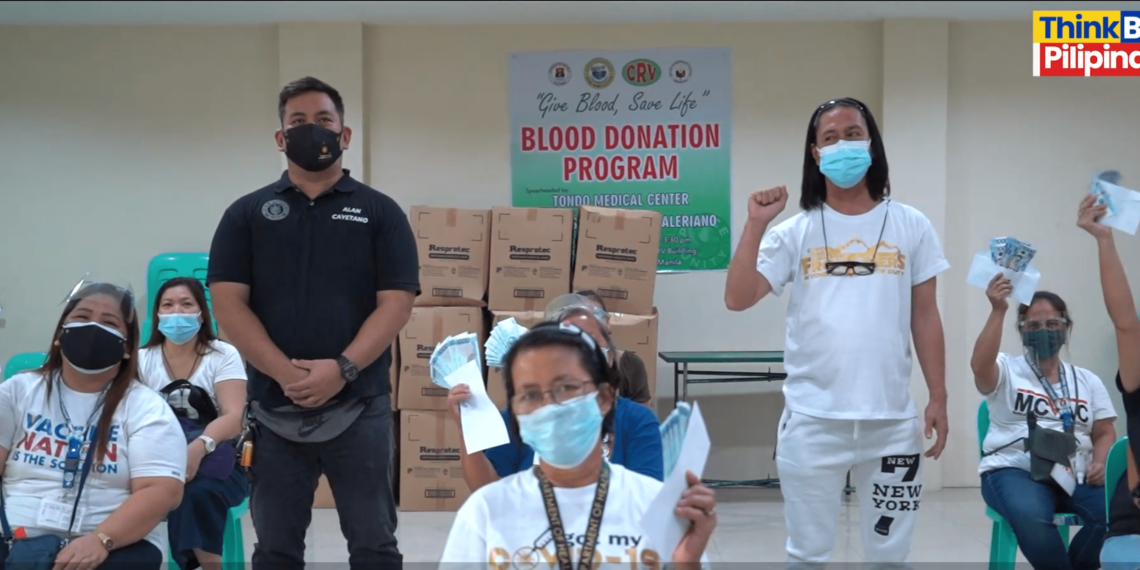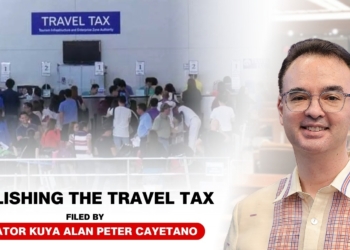Patience has always been one of the most essential things in the life of a barangay health worker (BHW).
“Natutulog pa y’ung mga bata gigisingin niyo para timbangin?!” Lyma Rico, President of Barangay Health Workers Federation in Marikina City, said as she recalled an experience with a parent in one of their house-to-house “operation timbang.”
(Are you really going to wake the children up just to weigh them?!)
“Ganu’n po siguro talaga kapag naglilingkod ka — kailangang lawakan ang iyong puso at isipan,” she added.
(I guess it’s just how it is — when you serve, you have to be more understanding and keep an open heart.)
But now that they are at the frontline of the country’s fight against an unprecedented and unseen enemy, Rico’s past experiences are nothing compared with the anxiety they have to endure everyday.
Roberto Beltran, president of the Manila City Barangay Health Workers Federation, said their greatest concern is that the pandemic might not end soon.
“Ang agam-agam namin ay kelan ba matatapos ang pandemyang ito?” he said.
(We worry about when this pandemic will end.)
Despite all these, Rico and Beltran said they are happy to be BHWs.
“Since 2010, from then until now, ang gusto ko is talagang makatulong… sa simpleng paraan natutulungan ko ung kapwa ko in terms of ung health nila,” Beltran said.
(Since 2010 until now, what I just really want is to help other people by simple acts of caring for their health.)
Rico and Beltran’s experiences are only two of the stories that inspired former House Speaker Alan Peter Cayetano and Taguig City 2nd District Rep. Lani Cayetano to choose 150 BHWs as the latest beneficiaries of their Sampung Libong Pag-Asa program on Friday, September 10, 2021.
The BHWs who received P10,000 in cash aid each were from the cities of Manila, Marikina, Muntinlupa, San Juan, and Mandaluyong.
“Barangay health workers in most areas around the country, dahil kapos o salat sa budget ang ating mga LGU, ay allowance lang,” the former Speaker stressed during the program’s Facebook livestream.
(Due to LGUs’ lack of resources, barangay health workers in most areas around the country receive allowances only.)
He said with the current situation, allowances are simply not enough.
“Before, kung y’ung asawa, o y’ung anak, o y’ung tatay, o nanay may trabaho, kahit papa’no pandagdag lang ung allowance nya. Pero nowadays, nawalan ng trabaho, kung tricycle driver o jeepney driver ung tatay o asawa, talagang hirap na hirap sila,” he said.
(Before, as long as the spouse, the children, or the parents have a job, allowances for BHWs are enough. But nowadays, due to unemployment, they really are suffering.)
Launched on May 1, the Sampung Libong Pag-Asa program provides P10,000 in financial assistance to select individuals affected to help them with their daily needs as well as put up their own small businesses amid the pandemic.
As of writing, a total of 10,458 pandemic-hit Filipinos from different sectors in the country have benefitted from the program.
The Taguig 2nd District Representative said most BHWs volunteer out of “passion” and without expecting something in return.
However, she said, their role in providing the “foundation of the health of all Filipinos” must be reciprocated by the government.
“Pagkabata pa lang nagmomonitor na dyan ung mga barangay health worker. In fact, magsisimula sa pag-aalaga nila ng mga buntis, pagsisigurong nabakunahan ang mga sanggol, hanggang sa nutrisyon ng mga kabataan,” she said.
(Since we are little, barangay health workers have been there, monitoring our health — before we were born, even. They have been taking care of us from the time of our mothers’ pregnancy, babies’ vaccination, up until the nutritional intake of children.)
“I hope ito pong Sampung Libong Pag-Asa can give some hope and some help to all of you,” Cayetano addressed the BHWs.
In Taguig, around 800 BHWs of the City have been elevated to either job order or contractual status. They also receive hazard pay and regular training.
The two Cayetanos and their allies in Congress have filed a bill on August 31 that seeks to elevate all BHWs from volunteers to government workers and provide them with “sufficient incentives, benefits, and most of all, just compensation.”






